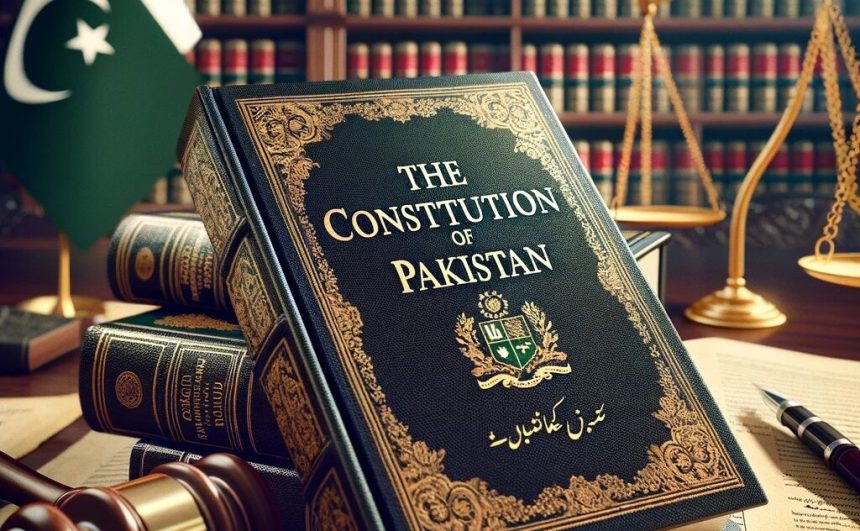The Pakistan Bar Council (PBC) threw its full support behind the parliament in its right to amend the constitution, urging institutions not to transgress their constitutional limits. The decision came during the 243rd meeting of the council, the leading body of lawyers in Pakistan, inside the Supreme Court building in Islamabad.
The meeting was chaired by PBC Chairman Mansoor Usman Awan, who is also the Attorney General of Pakistan. Farooq H Naek was elected unopposed as the vice chairman, while Riazat Ali Sahar took on the role of chairman of PBC’s Executive Committee. The meeting was convened to present three resolutions, which were passed by the members unanimously.
The first resolution was about the trichotomy of powers that were outlined in the constitution. It said that it was parliament’s prerogative to legislate, with the judiciary playing the role of the interpreter and the executive implementing the laws. It said that this “clear separation” of powers was fundamental to how the country is governed. The council said in a statement that it stood firmly behind the parliament and recognized its supreme constitutional role in lawmaking.
It highlighted that the constitution’s preamble grants the state authority through the people’s chosen representatives. It also stated that parliamentarians had the mandate to enact laws in the nation’s best interest. The resolution showed the bar council’s commitment to uphold the constitution and protect the rights of citizens, and aimed at strengthening the role of the parliament and ensuring that all institutions respected their constitutional boundaries.

The second resolution presented and passed on the occasion was against the recent increase in court fees in Punjab. It said that the court fees witnessed a massive hike from Re1 to Rs100 and from Rs2 to Rs500 as a result of a recent amendment to the Court Fee Act, 1870 through the Punjab Finance Act 2024. The council noted with concern that another amendment had been made to the Stamp Act, 1899, as a result of which the stamp duty was increased from Rs100 to Rs300 and from Rs1,200 to Rs3,000.
Labelling these increases as cruel and unjustified, the PBC argued that such hikes denied poor litigants access to justice, which was a fundamental right protected under the constitution. It said that access to justice for all was a command of the constitution, and highlighted that economic barriers should not obstruct this right. The council pointed out that the superior courts had repeatedly held that access to justice could not and should not be hindered by financial constraints.
It criticized the Punjab government for increasing the court fees, especially at a time when inflation was so high and had already strained the people’s lives by taking away basic necessities. The PBC said that such a hike was an attempt to undermine access to justice, which was a fundamental right of citizens. The council demanded that the Punjab government immediately withdraw those “unjust and arbitrary” amendments for the sake of fairness and equality, as well as to provide inexpensive justice to the underprivileged segments of the society.
In the final resolution, which aimed at streamlining internal communication, the Pakistan Bar Council decided that only those statements would be deemed official that had been issued by the vice chairmen and chairmen of the executive committees, that too signed by the secretary. It said that the move would ensure clarity and authority in the council’s public statements, which will subsequently enhance its credibility.












